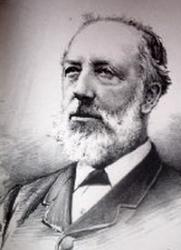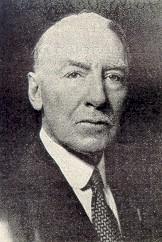Planning worship?
Check out our sister site, ZeteoSearch.org,
for 20+ additional resources related to your search.
- |
User Links
Person Results
Julie Tennent
Author of "Why, LORD, Do You Stand Far Away?" in Psalms and Hymns to the Living God
Julie Tennent
Walter Cecil Macfarren

1826 - 1905 Person Name: Walter C. Macfarren Composer of "HERI MUNDUS EXULTAVIT" in The Cyber Hymnal Walter Cecil Macfarren, b. London, 1826
Evangelical Lutheran Hymnal, 1908
=================
Born: August 28, 1826, Westminster, London, England.
Died: September 2, 1905, at home in St. Pancras, London, England.
Buried: St. Pancras Cemetery, East Finchley, London, England.
Brother of George Macfarren, Walter served as a chorister in Westminster Abbey (1836-41). He entered the Royal Academy of Music in 1842 and was a professor of piano there (1846-1903). He composed pieces for piano, voice and piano, and vocal ensemble, and for many years was a music critic for The Queen.
Sources:
Frost, p. 681
http://www.hymntime.com/tch/bio/m/a/c/macfarren_wc.htm
==================
http://en.wikisource.org/wiki/Macfarren,_Walter_Cecil_%28DNB12%29
Walter Cecil Macfarren
Peter Thole
? - 1950 Person Name: Peter Z. Thole, d. 1950 Author of "Just as a lamb is led" in Come, Let Us Walk This Road Together
Peter Thole
Timothy Tennent
Author of "Why, LORD, Do You Stand Far Away?" in Psalms and Hymns to the Living God
Timothy Tennent
Kevin Hildebrand
b. 1973 Composer of "[Do not fret because of those who are evil]" in Christian Worship
Kevin Hildebrand
William Whittingham
1524 - 1579 Person Name: W. W. Author of "The X. Commandements of God" in The Whole Booke of Psalmes
William Whittingham
Joseph Anstice
1808 - 1836 Author of "Darkly Rose the Guilty Morning" in The Cyber Hymnal Anstice, Joseph , M.A., son of William Anstice of Madeley, Shropshire, born 1808, and educated at Enmore, near Bridgwater, Westminster, and Ch. Church, Oxford, where he gained two English prizes and graduated as a double-first. Subsequently, at the ago of 22, he became Professor of Classical Literature at King's College, London; died at Torquay, Feb. 29, 1836, aged 28. His works include Richard Coeur de Lion, a prize poem, 1828; The Influence of the Roman Conquest upon Literature and the Arts in Rome (Oxford prize Essay); Selections from the Choice Poetry of the Greek Dramatic Writers, translated into English Verse, 1832, &c. His hymns were printed a few months after his death, as:— Hymns by the late Joseph Anstice, M.A., formerly Student of Christ Church, Oxford, and Professor of Classical Literature, King’s College, London, Bridgwater, 1836, and thus introduced:—
"As none of the following Hymns had the advantage of being corrected and prepared for the press by their lamented Author, his family have not considered themselves at liberty to bring them before the public; but, having reason to believe that a large circle of surviving friends will be gratified by possessing a memorial of the manner in which some of his leisure hours were employed, and of the subjects which chiefly occupied his thoughts, during the last few months of his life, they have consented to their being printed for private distribution.—-Bridgwater, June, 1836."
This work contains 52 hymns on various subjects, together with a poem "To my Hymn Book." The circumstances under which they were written are thus detailed by Mrs. Anstice in a communication to the Rev. Josiah Miller, author of Singers and Songs of the Church:—
"The hymns were all dictated to his wife during the last few weeks of his life, and were composed just at the period of the day (the afternoon) when he felt the oppression of his illness—all his brighter morning hours being given to pupils up to the very day of his death."-—S. & S., p. 495.
A few of the hymns are of a joyful character, but the circumstances under which they were written account for the prevailing tone of sadness by which they are chiefly characterized. About one half of these hymns were included by Mrs. Yonge in her Child's Christian Year, 1841. Being thus brought before the public, many soon came into common use. Those in most extensive use are: "Father, by Thy love and power;" "In all things like “Thy brethren, Thou;" "Lord of the harvest, once again;" and, "O Lord, how happy should we be."
-- John Julian, Dictionary of Hymnology (1907)
Joseph Anstice
William Bourn Oliver Peabody

1799 - 1847 Person Name: William B. O. Peabody Author of "As Once The Savior Rose On High" in The Cyber Hymnal Peabody, William Bourne Oliver, D.D., twin brother of Oliver William Bourne, was born at Exeter, New Hampshire, July 9, 1799, and educated in his native town and at Harvard College. Leaving Harvard in 1817, he taught for a year at an academy in Exeter, and then proceeded to study theology at the Cambridge Divinity School. He began to preach in 1819, and became the Pastor of the Unitarian Congregation at Springfield, Massachusetts, in October, 1820. This charge he held to his death on May 28, 1847. His Memoir (written by his brother) was published with the 2nd ed. of his Sermons, 1849; and his Literary Remains followed in 1850. "He was a man of rare accomplishments, and consummate virtue," whose loveliness of character impressed many outside his own sect. In 1823 he published a Poetical Catechism for the Young to which were appended some original hymns. He also edited The Springfield Collection of Hymns for Sacred Worship, Springfield, 1835. A few of his hymns also appeared in that collection. His hymns in common use are:—
1. Behold the western evening light. Death of the Righteous, or Autumn Evening. Published in his Catechism, 1823, in 6 st. of 4 1., and again in his Springfield Collection, 1835, No. 484. It is in common use in its original form; also as altered in the Leeds Hymn Book, 1853; and again as altered by George Rawson in the Baptist Psalsm & Hymns, 1858, where it reads "How softly on the western hills."
2. God of the earth's extended plains. Hymn of Nature. This is in Griswold's Poets and Poetry of America, in 6 st. of 8 1. This is thought by some to be the production of his brother Oliver; but Putnam assigns it to William. It is given abbrevi¬ated in a few collections. The hymn "God of the rolling orbs above," in the Boston Unitarian Hymns [and Tune"] Book, 1868, and others, begins with st. v.
3. 0 when the hours of life are past. The Hereafter. This hymn, in 6 st. of 4 1., was given in his Catechism, 1823, as the Answer to "Question xiv. What do you learn of the Future State of Happiness." It is in use in its original form, and also altered as "When all the hours of life are past."
4. The moon is up: how calm and slow. Evening. A poem rather than a hymn, in 6 st. of 4 1., appended to his Catechism, 1823.
5. When brighter suns and milder skies. Spring. Appended to his Catechism, 1823, in 6 st. of 4 1.
The full texts of all these hymns are in Putnam's Singers and Songs of the Liberal Faith, Boston, U. S. A., 1875. [Rev. F. M. Bird, M.A.]
-- John Julian, Dictionary of Hymnology (1907)
William Bourn Oliver Peabody
John Spencer Camp

1858 - 1946 Person Name: John S. Camp Composer of "ABIDING GRACE" in The Cyber Hymnal Born: January 3, 1858, Middletown, Connecticut.
Died: February 1, 1946. The funeral was held at Asylum Hill Congregational Church in Hartford, Connecticut.
Buried: Indian Hill Cemetery , Middletown, Connecticut.
Camp graduated from Wesleyan University in 1878 and received a Master of Arts in 1881. He went on to study law, but found that music was his true vocation. In 1882, he became organist at the Park Congregational Church in Hartford, Connecticut, and in 1906 organist at the Center Church in Hartford, Connecticut. He left the Center Church in 1921 to become director of the Austin Organ Company. He was awarded a Doctorate in Music by Trinity College in 1921, and a second doctorate from Wesleyan University in 1933.
Camp was a founder of the American Guild of Organists, 1896 and was President of the Connecticut Music Teachers’ Guild, 1898. For many years he conducted the Hartford Philharmonic Orchestra, which he organized. Among his benefactions is the John Spencer Camp Professorship of Music at Wesleyan University.
--www.hymntime.com/tch/
John Spencer Camp


 My Starred Hymns
My Starred Hymns


